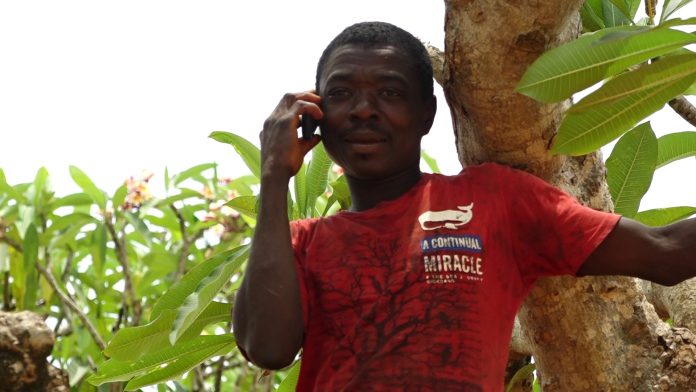Observations have shown that the primary source of information for people in the rural community is the traditional media, primarily radio and television.
However, in a country where the digitalization drive by the Government is running at a fast pace, it is critical that we leave no one behind.
This means that mobile network and the internet are instrumental. While admitting that most rural folks will not consider the use of data or the internet as the primary source of information, having it as an alternative can’t be overlooked.
It is in this regard that I bring you the story of Achiansa community.
The absence of mobile network in Achiansa, a farming community in the Ayensuano District in the Eastern Region of Ghana is leading to misinformation.
Speaking in an interview with Atinka News’ reporter and mentee under the Journalists for Human Rights (JHR) project, Ishmael Atiemo, the residents explained that they are unable to use their mobile phones to access information thereby relying on hearsay about COVID-19.
A visit to the community saw some residents climbing trees to access mobile network to call for information.
Although their primary source of information is radio and television, these farmers say since they leave early for their farms and return late they find no time to listen to radio or watch television for information. Hence, their mobile phone is the next alternative but due to poor network, they are robbed off that alternative as well.
Apart from climbing trees, one will have to climb a mountain called Saint Mary or gather in front of a hairdressing salon for a mobile network.
Another worrying trend is that due to the lack of mobile network and internet, the residents find it difficult to access the emergency numbers of health facilities in the event of an emergency. Similarly, they cannot even call family members
or drivers via telephone to convey them to the hospital should they fall ill in the middle of the night.
This means their access to healthcare is curtailed due to lack of mobile network and internet in the community. This is in contravention to Government’s quest to achieve the Sustainable Development Goal (SDG) 3 on universal health coverage by 2030.
Some of the residents told us they won’t take the covid-19 vaccine due to misinformation they have about it.
“We heard that when you take the vaccine you will be rendered impotent you may even die” some of them told us.
Ghana is chalking strides in internet penetration and the liberalization of the telecommunications market, but the development of rural telecommunications is still relatively lagging. The Ministry of Communications and the Ghana Investment for Electronic Communications (GIFEC) in October 2020 signed a financing agreement for the rural network project.
Per the agreement with the Export-Import Bank of China, Huawei will deploy more than 2000 Rural Star sites for Ghana to provide voice and data services for over 3.4 million people in underserved and unserved communities.
This would extend the national mobile communication coverage from 83 per cent to 95 per cent.
Minister of Communications and Digitalisation, Mrs. Ursula Owusu-Ekuful who declined to speak in detail about mobile network and internet penetration in rural communities, said Govt’s project on that will end in September 2021.
Addressing the concerns raised by the rural folks on misinformation, Dr. Patrick Kuma-Aboagye, Director-General of the Ghana Health Service said they will be engaging the assembly members and chiefs of the community and other communities with same issues to help circulate the right information about the virus and the vaccine to the people.
They pleaded with government and communication companies to provide them with a stable network for calling and browsing.


























